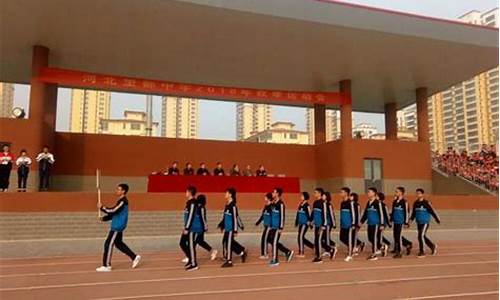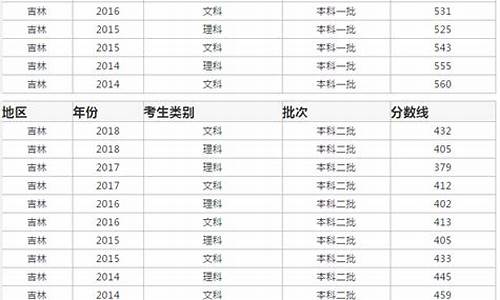英语高考副词100个,高考常考副词
1.求高考英语写作常用的高级形容词和副词(一定要阅卷老师看得懂的)
2.高考语法复习系列 形容词和副词
3.高考新概念英语语法全解之形容词和副词
4.《求助》高考英语要考哪些连接副词啊
5.2017年高考英语备考:地点副词的用法
6.高考英语知识点:程度副词有哪些

本课件可作为高三第二轮专题复习之用。本课件包括形容词的构成;形容词的位置;表语形容词;形容词做状语;副词做评注性状语;enough的用法;比较级;最高级;高考常考易混点;易混形容词、副词比较等。08及09高考关于形容词、副词归纳汇总。本课件可安排2课时。学生通过学习能够全面掌握和复习形容词和副词的用法,对高考考点有一个全面的了解和掌握,是一份不错的资料,欢迎大家使用。
1.高考仍然会以形容词、副词的辨析为热点;
2.仍然会以形容词、副词的比较等级为重点。
3.在“注重基础”的大环境下,对于形容词、副词的基础知识,如多个形容词,副词的顺序,enough的位置以及一些特别重要的固定句型结构(如表示“倍数”的句型)进行考查
求高考英语写作常用的高级形容词和副词(一定要阅卷老师看得懂的)
近年来,高考英语命题有个新特点,就是陆续出现一些考查某些“难认”副词的用法的考题。这类题与其说是考查副词的用法,还不如说是考查考生是否“认识”这些副词——因为这些副词都比较“长”(大都多于八个字母),同时也比较“难”(对那些基础不好的考生来说可能是生词)。事实上,同学们只要知道这些副词的词义,然后分别将其代入句子,意思最通顺的即为最佳答案。 ?
1.—Doyouthinkit’sagoodideatomakefriendswithyourstudents? ?
—_______,Ido.Ithinkit’sagreatidea. ?
A.Really ?
B.Obviously ?
C.Actually ?
D.Generally ?
2.Thequestionnairetakes_______tentofifteenminutestocompleteandcanbeusedalongwiththeassessmentinterview. ?
A.mainly ?
B.punctually ?
C.approximately ?
D.precisely ?
3.Inthegoodcareofthenurses,theboyisrecoveringfromhisheartoperation_______. ?
A.quietly ?
B.actually ?
C.practically ?
D.gradually ?
4.Theincomesofskilledworkerswentup._______,unskilledworkerssawtheirearningsfall. ?
A.Moreover ?
B.Therefore ?
C.Meanwhile ?
D.Otherwise ?
以上四道题的答案分别为CCDC。同学们,你们认识这些副词吗?下面是为大家归纳的最常考的15个“长难”副词。 ?
1.moreoveradv.而且,再者,此外,加之 ?
Thefirmdidtheworkverywell.Moreover,thecostwasnottoohigh. ?
这家公司做得十分出色,而且费用也不太高。 ?
Thepriceistoohigh,andmoreoveritisn’tinasuitableposition. ?
价钱太高,而且位置也不合适。 ?
2.thereforeadv.因此,所以 ?
Hewasbusy;thereforehecouldnotcome. ?
他很忙,所以不能来。 ?
Thenewtrainshavemorepowerfulenginesandarethereforefaster. ?
新火车安装了更强的发动机,因此车速更快。 ?
3.otherwiseadv.否则,不然 ?
Youmustpayyourtaxesontime;otherwise,youwillbepunished. ?
你必须及时交税,否则你就会受罚。 ?
Youmustworkhard;otherwiseyouwillnotlearnEnglishwell. ?
你必须用功,否则就学不好英语。 ?
4.meanwhileadv.与此同时,在此期间 ?
They’llbehereintenminutes.Meanwhile,we’llhavesomecoffee. ?
他们10分钟后到这儿,现在我们先喝点咖啡。 ?
JanewaspaintingthewallandmeanwhilePatwaswatchingTV. ?
简在刷墙漆,与此同时帕特在看电视。 ?
5.practicallyadv.几乎,简直,差不多;实际上,事实上 ?
Theholidaysarepracticallyover;thereisonlyonedayleft. ?
假期差不多完了,只剩下一天了。 ?
Practically,wehavesolvedalltheseproblems. ?
事实上,我们解决了全部的问题。 ?
6.graduallyadv.逐渐地 ?
Thingsgraduallyimproved. ?
情况在逐渐改善。 ?
Andgraduallytheirtalkceased;longsilencefollowed. ?
他们的谈话慢慢停了下来,接着便是长时间的沉默。 ?
7.actuallyadv.实际上,事实上,说实在的 ?
Actuallythat’snotquiteright. ?
实际上,那不完全正确。 ?
Hetalksbigbutdoesn’tactuallydoanything. ?
他光吹牛,什么实际的事都不干。 ?
8.approximatelyadv.大约,大概 ?
Theaccidenthappenedatapproximately5:30. ?
事故大约发生在五点半。 ?
Thesevisitshadcontinuedregularly,approximatelyeverythirdweek. ?
这些参观定期进行,大约每三周一次。 ?
9.generallyadv.通常,一般,广泛地,普遍地 ?
Doctorsgenerallyworklonghours. ?
医生通常工作时间都很长。 ?
GenerallyhewatchesTVfortwohoursintheevening. ?
一般他晚上看两小时的电视。 ?
10.obviouslyadv.明显地,显然 ?
Hewasobviouslydrunk. ?
他显然喝醉了。 ?
Hefoundayoungandbeautifulgirl,whokeptshoutingandcrying,obviouslymad. ?
他发现了一个年轻漂亮的姑娘,这个姑娘又喊又哭,分明是疯了。 ?
11.howeveradv.(表示转折)可是,然而 ?
Myroomissmall;however,it’scomfortable. ?
我的房间很小,但很舒服。 ?
Hesaidthatitwasso;hewasmistaken,however. ?
他说情况如此,可是他错了。 ?
12.extremelyadv.极其,非常 ?
Iadmirehiscourageextremely. ?
我非常钦佩他的勇气。 ?
Ican’tworkbecauseyourradioisextremelyloud. ?
你的收音机太响,我都不能工作了。 ?
13.narrowlyadv.勉强地,差点没 ?
Henarrowlyescapedbeingrunover. ?
他差一点被车撞倒。 ?
Henarrowlymissedbeingseriouslyinjured. ?
他差点受了重伤。 ?
14.occasionallyadv.偶尔,间或 ?
Weonlyhavedinnerpartiesveryoccasionallythesedays. ?
这些日子我们不经常有宴会。 ?
It’sallrighttoborrowmoneyoccasionally,butdon’tletitbecomeahabit. ?
偶尔借点钱倒没什么,只是不要成为一种习惯。 ?
15.eventuallyadv.最后,终于 ?
Heworkedsohardthateventuallyhemadehimselfill. ?
他工作如此努力,以至于最后病倒了。 ?
Wewaitedthreedaysfortheletterandeventuallyitcame.我们等了三天,信终于来了。 ?
边学边练 ?
1.Thecommitteeisdiscussingtheproblemrightnow,_____itwillhavebeensolvedbytheendofnextweek. ?
A.eagerly ?
B.hopefully ?
C.immediately ?
D.gradually ?
2.Progresssofarhasbeenverygood._______,wearesurethattheprojectwillbecompletedontime. ?
A.However ?
B.Otherwise ?
C.Therefore ?
D.Besides ?
3.Hebegantotakepoliticalscience_______onlywhenheleftschool. ?
A.strictly ?
B.truly ?
C.carefully ?
D.seriously ?
4.Shedevotedherselftoherresearch_______anditearnedheragoodreputationinherfield. ?
A.strongly ?
B.extremely ?
C.entirely ?
D.freely ?
5.—Hi,Mark.Howwasthemusicalevening? ?
—Excellent!AlesandAndyperformed_______andtheywonthefirstprize. ?
A.skillfully ?
B.commonly ?
C.willingly ?
D.nervously ?
6.Asheworksinaremotearea,hevisitshisparentsonly______. ?
A.occasionally ?
B.anxiously ?
C.practically ?
D.urgently ?
参考答案:1~6BCDCAA
参考资料
高考语法复习系列 形容词和副词
advanced adj.高级的,先进的
determined adj.有决心的
concerned adj.担心的
enthusiastic adj.热情的,很感兴趣的
aggressive adj.好斗的,有进取心的
approximately adv.近似的,大约的
practical adj.实践的,实用的
automatic adj.自动的
incredible adj.难以置信的
current adj.当前的,现在的
political adj.政治的
widespread adj.广泛的
delighted adj.高兴的
self-employed adj.自己经营的
visual adj.视力的,视觉的
contemporary adj.当代的
innocent adj.单纯的
faithfully adv.忠诚地
environmental adj.自然环境的
naughty adj.淘气的
curiously adv.好奇地
splendid adj.极好的,壮观,
cautious adj.谨慎的
competitive adj.竞争的
不写了不写了,我要睡觉了。。要是想要更多的花加我扣吧,724804605
高考新概念英语语法全解之形容词和副词
?第三章 ?形容词和副词
高考对形容词和副词的考查主要集中在对形容词和副词的辨析上,同时加大对比较级的考查
一、?形容词
1)多个形容词修饰名词的排列顺序
限定词(包括冠词、所有格、人称代词、指示代词、数量词等)+表示观点的词(品质,状态,即表示好坏美丑等的词)+大小或长短+年龄或新旧+形状或样式+颜色+产地或来源+材料或种类+用途+名词
a nice long new black British plastic pen
2)形容词作状语,表伴随或结果
He returned,safe but tired.
3)复合形容词的用法
1)形容词 + 名词 + ed ?kind-hearted好心的,white-haired白发的
2) 形容词 + 形容词 red-hot炽热的,dark-blue深蓝的
3)形容词 + 现在分词 good-looking好看的,easy-going随和的
4)副词 + 现在分词 ?hard-working勤劳的,fast-moving快速转动的
5)副词 + 过去分词 ?hard-won得来不易的,newly-made新建的
6)名词 + 形容词 life-long终生的,world-famous世界闻名的
7)名词 + 现在分词 ?peace-loving爱好和平的,fun-loving爱开玩笑的
8)名词 + 过去分词 ?snow-covered白雪覆盖的,hand-made手工的
9)数词 + 名词 + ed ?four-storeyed 4层楼的,three-legged 3条腿的
10)数词 + 名词(名词用单数) ?ten-year 10年的,two-man两人的
二、?形容词和副词比较级和最高级的用法
一、比较级和最高级的常见结构
1. “the +比较级……, the +比较级“:表示“越……越……”
The sooner you see a doctor, the better it is.你越早看医生越好。
2. the +序数词+最高级+单数可数名词:表示“第几大的”
This is the third most popular song of Michael Jackson。
这是迈克尔·杰克逊第三受欢迎的歌曲。
二、比较级和最高级的修饰语
1.常见的比较级的修饰语有:much, a little, a great deal, far, by far, even, will, still, a bit, a little, rather, any, (far) larger than
This movie is far more interesting than I expected.这部**比我原想的有意思的多。
2. all the +比较级:愈来愈
I worked all the harder.我工作愈来愈努力了。
3.常见的最高级的修饰语有:序数词,by far, nearly, almost, by no means, not quite, not really等
He is almost the best player.他基本上是最好的选手。
4. any修饰比较级只用于疑问句、否定句和条件状语从句
Can you do any better on this job?你这件事情能不能做得更好些?
三、表达倍数的常用结构
1.数词+times+as+形容词原级+as
This room is twice as big as that one.这房间的面积是那间的两倍。
2.数词+times+形容词比较级+than
This room is twice bigger than that one.这房间的面积是那间的两倍。
3.数词+times+性质名词+of (性质名词主要有:length, size, height, weight, depth等)
This room is twice the size of that one.这房间的面积是那间的两倍。
4. (not)half+as+形容词原级+as
This room is half as big as that one.这房间的面积是那间的一半。
四、比较级与冠词的搭配
1.不含than的比较级前可加不定冠词修饰,构成“ a/an+比较级+单数可数名词”表示“一个更……的人/物”。
Why don’t you use a sharper knife?你为什么不用一把更锋利的刀呢?
2.被比较者被明确特指时,比较级前面应该加定冠词“the”修饰。
Which is the younger one, Lily or Lucy? 哪一个年龄小一些,莉莉还是鲁西?
五、比较级和同级比较
1. as +原级+ as : 和……一样
The room is as big as that one.这间房子和那间一样大。
2. as many/much/far/long as +具体数词:到达某种程度
The number of the students in that school reaches as many as 4,000.那所学校的学生数量多达4ooo人。
3. as… as中间有名词时采用以下格式:
1) as +形容词+ a/an +单数名词+as
He is as kind a person as his father.他和他爸爸一样都是善良的人。
2) as + many/much+不可数名词/可数名词复数+as
I can carry as much paper as you can.你能搬多少纸,我也能。
I have as many books as you do.我的书和你的一样多。
六、关于比较级、最高级的几个高频考点
1. most前若没有the,就没有比较的意思,只是加强语气,有“很,非常”之意。
This is a most interesting story。
2. 比较级+than any other
She is taller than any other girl in her class。
3. …never…+比较级…,not…ever…+比较级…
I have never heard a better voice than yours。
4.nothing/nobody…+比较级+than…
Nothing is more precious than time。没有比时间更珍贵的。
欢迎关注黄瓜高中英语,学习更多高中英语知识。
《求助》高考英语要考哪些连接副词啊
形容词和副词
一、考点聚焦
形容词、副词的作用与位置:形容词是用来修饰名词的,常被放在名词前作定语,或放在系动词后面作表语。而副词则用来修饰形容词、动词,其他副词或者句子,一般位于形容词之前,动词之后或
句子之首。
第一节:形容词
1、形容词的定义:形容词简称adv. 形容词简称adv.修饰v. adj.,其他adv.或全句的词,v.,adv.或全句的词修饰v.,adj.,其他adv.或全句的词,表示时间,地点,程度,方式等。表示时间,地
点,程度,方式等。
2、复合形容词的构成
(1)形容词+ 名词+ ed kind-hearted 好心的,white-haired 白发的
(2)形容词+ 形容词red-hot 炽热的,dark-blue 深蓝的
(3)形容词+ 现在分词good-looking 好看的,easy-going 随和的
(4)副词+ 现在分词hard-working 勤劳的,fast-moving 快速转动的
(5)副词+ 过去分词hard-won 得来不易的,newly-made 新建的
(6)名词+ 形容词life-long 终生的,world-famous 世界闻名的
(7)名词+ 现在分词peace-loving 爱好和平的,fun-loving 爱开玩笑的
(8)名词+ 过去分词snow-covered 白雪覆盖的,hand-made 手工的
(9)数词+ 名词+ ed four-storeyed 4 层楼的,three-legged 3 条腿的
(10)数词+ 名词(名词用单数)ten-year 10 年的,two-man 两人的
第二节:副词
什么是副词?
指出句中的副词:
1. You are standing near the camera.. Can you move a little farther? a little修饰副词“farther”表示程度 farther修饰动词“move”表示方式
2. Miss Long usually goes to school by bus. usually修饰动词goes,表示频度、频率
3. The two old passengers fell into the sea. Unfortunately, neither of them could swim. Unfortunately修饰整个句子
4. I won’t go with you. It’s much too hot today. much too修饰形容词,表示程度修饰形容词hot,修饰形容词
高考副词主要考点
主要题型:选择填空,完形填空,改错
考点内容:
1. 副词词义辨析
(10浙江) Do you think shopping online will ____________ take the place of shopping in stores?
A.especially B.Frequently C.merely D.finally
解析:especially 特别,尤其;frequently经常;merely仅仅;finally最终
根据语境:你认为网上购物最终会替代商场购物吗?
(10湖北) I wasn’t blaming anyone; I ___________ said errors like this could be avoided.
A. merely B. mostly C. rarely D. nearly
解析:mostly 大部分地,通常地;nearly 几乎=almost;rarely 很少地,几乎不;merely 仅仅,只不过
全句意思:我并没有责怪任何人,我只是说类似这种错误是可以避免的” 说类似这种错误是可以避免的”。
2. 副词短语与习惯用语辨析
(09全国) It’s high time you had your hair cut; it’s getting .
A. too much long B. much too long C. long too much D. too long much
解析too much+不可数名词 much too+形
(09天津) It was a nice house, but _______ too small for a family of five.
A. rarely B. fairly C. rather D. pretty
解析rather too 稍微,一点
全句意思:这房子不错,但对于五口之家还是稍微小了点
(2011全国)It is one thing to enjoy listening to good music, but it is______another to play it well yourself.
A. quite B. very C. rather D. much
解析quite another 另一回事
全句意思:喜欢听好音乐是一回事,但是自己演奏的好又是另一回事
3. 某些副词的位置
(10辽宁)We only had $100 and that was _______ to buy a new computer.
A.nowhere near enough B.near enough nowhere C.enough near nowhere D.near nowhere enough
辨析enough做副词时,修饰形容词或副词时应该放在被修饰词的后面adj/adv+enough nowhere near是固定短语,意思是“差得远;远不及” ,相当于一个形容词
4. 短文改错题
Unfortunate, there are too many people in my family 此处用副词作状语,修饰整个句子
adv怎么分类?
◆按意义分类1.普通副词 2.疑问副词 3.连接副词 4.关系副词
普通副词可分为以下几类副词
1)时间副词:today今天 yesterday昨天 lately近来,最近 next 下个 如:next Sunday下周日 last…上个 如:last week上周
确切的时间副词可放句末和句首 They talked with Tom about it yesterday. Yesterday They talked with Tom about it.
2)频度副词:always总是usually通常often经常,总是,通常 sometimes 有时 seldom/rarely 很少,有时 never 从不 occasionally 偶尔,间或,从不 constantly时常,不断地 frequently
时常频繁地 行为/实义
之前:①常位于行为实义之前:He seldom goes to the movies. 放在be动词,助动词和情态动词之后:动词 ②放在动词,助动词和情态动词之后:She is always acting like that.
3)地点副词: here 这里 there那里 everywhere到处 anywhere任何地方 inside在里面,往里面 outside 在外面,向外面 upstairs 在楼上,往楼上 downstairs 在楼下,往楼下 常放在谓语V之
后:He went away.
He lived abroad.
4)方式副词: slowly慢慢地 happily幸福地,快乐地 hard努力地,艰苦地 quickly快,迅速地 sadly哀伤地,伤心地 quietly悄悄地,安静地 carefully认真地,小心地 properly恰当地,正确地,
常放在被修饰的V之后
或放在句末 He ran quickly. I can do it well.
5)程度副词: very非常 much非常,很 very much很,非常 quite相当,非常,相当,,很 rather相当 little少so这么,那么,如此 too太 enough足够地,充分地 hardly几乎不,简直不,常放在
被它修饰的adj.,
adv.或v.之前The book is very good. I almost believed his story.
6)语气副词:certainly当然 obviously显然地,当然 besides此外luckily/fortunately幸运地, 此外 unlickily/unfortuntely不幸地 语气副词常放句首,修饰全句,语气副词常放句首,修饰全句,表示强调说明,调说明,或表示说话人的语气和态度Unfortunately, he won't be here tomorrow evening.
adv怎样构成?
1. 本身为adv.:ago, now, often, very等
2. 大多数的adv.由adj.加上后缀ly组成 1)一般情况:slow-slowly, bad-badly 2)辅音字母结尾,y改为i再加ly happy-happily, angry-angrily 3)le结尾去掉e加y: single-singly
3. 有些adv.由介词或地点名词加后缀-ward (s)构成forward(s) backward(s)
4. 与adj同形的adv.:特别是以下几个:enough足够相当 early早, fast快, 足够 deep深地 high高,向高处 hard努力地,艰苦地 late迟到,晚 wide广阔地
5. 加ly变副词后意思发生变化的副词 highly非常,高度地 widely广泛地,非常 nearly几乎 lately近来,最近 hard努力地 hardly几乎不 deeply深深地,深刻地 widely广泛地
某些副词在句中的位置是怎样的?
1.a. enough足够地、十分地The book is _______enough for you to understand. easy _______ 这本书对你来说完全可以看得懂。They cannot walk ______________
_______________. fast enough 他们走得不够快。I'm ______ __________ to handle my own affairs. old enough 我已经长大了,可以处理我自己的事情。 b. enough足够的,
修饰n时也可放在n.后,也可放在n
前:enough money I have ___________ _____________ to buy the book. 我有足够的钱买着本书。enough chairs We have ___________ _____________ for everyone.
我们有足够的椅子让大家坐。
2. a. both, all, often及always等频度副词+实义动词及等频度副词实义动词;b. be动词情态动词助动词both, all, often, always等动词/情态动词助动词+ 动词情态动词/助动词等
are always
They _________ _____________ late for school. 他们总是上学迟到。 are both We ________ ____________ students of No. 14 High School. 我俩都是这个班的学生。all
like They ___________
_____________playing basketball. 他们全都喜欢打篮球。have both finished We_________ ____________ _____________ our homework.我们俩都完成作业了。
3. 几个副词在同一个句子中出现的情况:
1) 谓语v后常出现的副词有表示地点,时间,方式,一般的排列顺序为:程度→方式方式→地点如:时间副词, very hard there We worked _________ ________
__________ later ___________. 我们在那儿工作很努力。We’re going to have a meeting_________________ in the classroom _______________________. this
afternoon 今天下午我们将在教室里开会。
2) 几个时间副词,地点副词作状语时,一般来说时间副词/地点副词作状语时,从小到大排列,如:at five o’clock on the afternoon He was born _________________________ of July 28th, 1994
___________________. 他出生在1994年7月28号下午五点。 I first met Peter _______________________. in a bookstore in Boston 我第一次见到Peter是在波士顿的一个书店里。
以下属几种特殊情况,须牢记:
(1)形容词短语作定语,定语后置。a language difficult to master, a leaning tower about 180 feet high
(2)表语形容词(afraid、alike、alone、asleep、awake、alive 等)作定语,定语后置。如a man alive。有些表身体健康状况的形容词如well、faint、ill 只作表语。sick 既可作表语又可作定语,ill 如作定语意为“bad”。
(3)用作定语,修饰由不定代词one、any、no、some 和every 构成的复合词如anything、something 等时,通常后置。如:I have something important to tell you.
(4)else 常用作疑问代词和不定代词的后置定语。
(5)enough、nearby 修饰名词前置或后置,程度副词一般位于形容词、副词前面,enough 修饰形容词、副词时,必须后置。
(6)几个副词并列作状语时,其顺序较灵活,但一般是:方式→地点→时间。如:We had a good time together outdoors last Sunday.
(7)频度副词如often、always、usually 等在be 动词后,行为动词前。
(8)副词作定语,定语后置。如:The person there is waiting for you.
(9)几个并列的形容词作定语,其语序通常为:限定语(The、A)+ 描绘性形容词+ size (大小)shape + (形状)age + (年龄、时间)color 颜色)origin + (+ (国籍、来源)material + (材料)+
purpose(目的)+ 名词。如:a heavy black Chinese steel umbrella, the man’s first tow interesting little red French oil paitings
(10)以-ly 结尾的词性辨析。①下列单词以-ly 结尾,但却是形容词而非副词:lively、lonely、lovely、deadly、friendly、ugly、silly、likely、brotherly、timely 等。②表愿意
(无-ly)和引申意(有-ly)的副词:
deep 深wide 宽广high 高low 位置低deeply 深入地widely 广泛地highly 高度地lowly 地位卑微③有无-ly 意义大不相同的副词:dead 完全,绝对be dead asleep deadly 非常be deadly tired pretty 相当be pretty certain that… prettily 漂亮地be prettily dressed close 近Don’t sit close. closely 密切地Watch closely! late 晚、迟arrive late, come late lately 最近I haven’t seen him lately(recently).
2017年高考英语备考:地点副词的用法
一、连接副词的分类
连接副词可分为两类,一类是用于连接句子或从句,常见的有therefore,
besides,
otherwise,
however,
moreover,
still,
thus,
meanwhile等;另一类是用于引导从句或不定式,主要的有when,
why,
where,
how
等。
二、连接句子或从句的连接副词其性质类似于并列连词,使用时其前通常用分号或句号;若其前用逗号,则通常带有并列连词(如and)。如:I
don’t
like
it;
besides,
it’s
too
expensive.
我不喜欢它,而且也太贵了。We
all
tried
our
best;
however,
we
lost
the
game.
/
We
all
tried
our
best.
However,
we
lost
the
game.
我们都已尽了最大的努力,不过我们还是输了。注意,有的连接副词(如however等)后通常有逗号与句子的其他成分隔开。另外,这类副词有的还可位于句中或句末。如:He
may,
however,
come
later.
不过,他也许一会儿就到。We
all
tried
out
best.
We
lost
the
game,
however.
我们都已尽了最大的努力,不过我们还是输了。
Peter
is
our
youngest
child,
and
we
have
three
others
besides.
彼特是我们最小的孩子,我们另外还有三个。
三、引导从句和不定式的连接副词用于引导从句(名词性从句)或不定式的连接副词主要有when,
why,
where,
how等。如:Tell
me
when
we
shall
leave.
/
Tell
me
when
to
leave.
告诉我什么时候离开。I
don’t
know
how
I
can
find
him.
/
I
don’t
know
how
to
find
him.
我不知道如何找到他。Where
we
can
get
the
money
is
just
our
problem.
/
Where
to
get
the
money
is
just
our
problem.
到哪里去弄这笔钱正是我们头痛的事。That’s
why
he
speaks
English
so
well.
那就是他为什么英语讲得这么好的原因。
说明连接副词why
后不能接不定式,如可说
I
don’t
know
why
I
must
leave.(我不知道我为什么必须离开),但不能说
I
don’t
know
why
to
leave。
高考英语知识点:程度副词有哪些
地点副词
具体如下:
地点副词指表示地点的副词和表示位置关系的副词统称为地点副词.常见的这类副词有:
表示地点的:
here,there,home,upstairs,downstairs,anywhere,everywhere,nowhere,somewhere,abroad,elsewhere等.
表示位置关系的:
above,below,down,up,out,in,across,back,along,over,round,around,away,near,off,on,inside,outside,past等.
在表示位置关系的副词中,有些副词也可用作介词(如:
above,over,beyond,around,below,down,up,in,along,near,off,on,past等),在没有宾语时就是副词,有宾语时就是介词,如:
Come in,please.(副词)
They live in the next room.(介词)
Let's take along.(副词)
Let's walk along this street.(介词)
She looked around.(副词)
They sat around the table.(介词)
Let's go on with the work...(副词)
What subject will you speak on?(介词)
四、地点副词在句中的位置
地点副词常放在动词后面,如果是及物动词,一般就放在宾语后面.如:I remember having seen him somewhere.
Wuxia films are popular in China.
地点副词和时间副词并列使用时,一般要把地点副词放在时间副词之前.如:
We had a meeting here yesterday.
He did the work carefully here yesterday.
如果地点状语很长时,也可以放在时间状语之后.如:
He was born in 1940 in a small village at the foot of Mount Tai.
五、地点副词常可以用作表语
副词可以用作表语,主要是地点副词,时间副词和其他副词有时也可以用作表语.如:
They are inside.他们在里面.
How long will she be away?她要离开多久?
When will you be back?你什么时候回来?
You haven't been around much.你很少到这边来.
He'll be round in an hour.他一个小时内就到.
Now autumn is in.秋天来了.
I must be off now.我得走了.
We are behind in our plan.我们落在计划后面了.
英语程度副词注意肯定否定的区别
much, little, very, rather, so, too, quite,perfectly, enough, extremely, entirely, almost, slightly, fairly. ect.
声明:本站所有文章资源内容,如无特殊说明或标注,均为采集网络资源。如若本站内容侵犯了原著者的合法权益,可联系本站删除。












